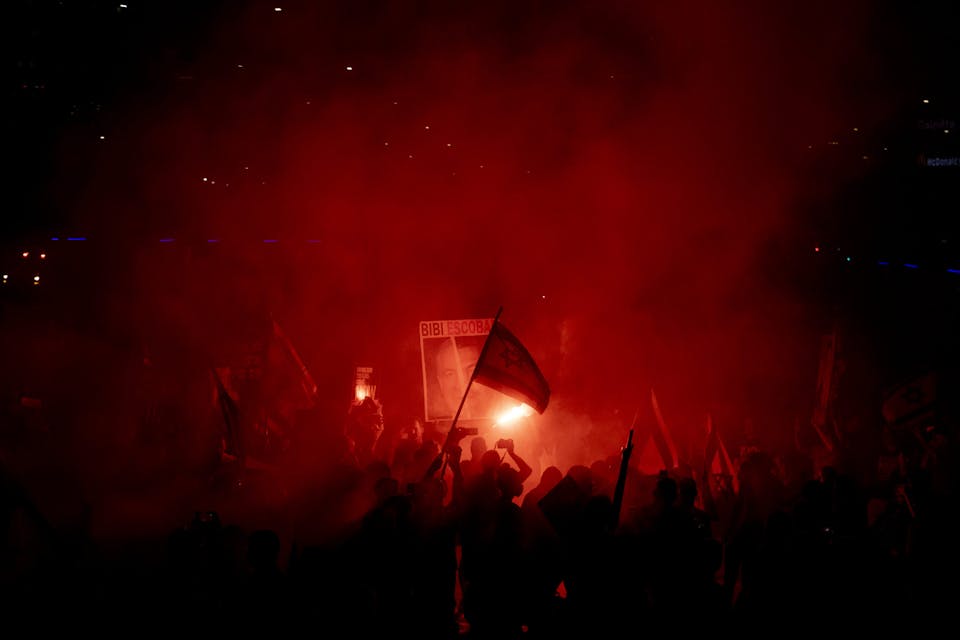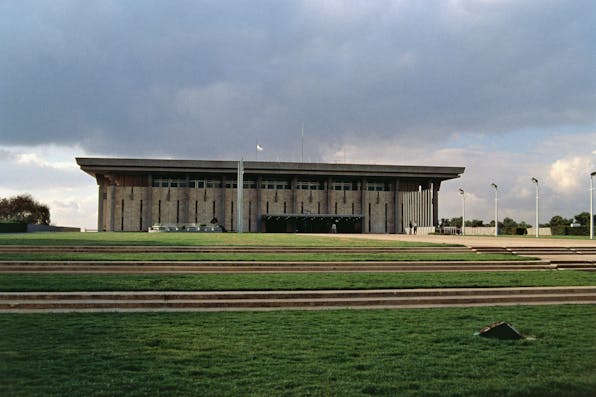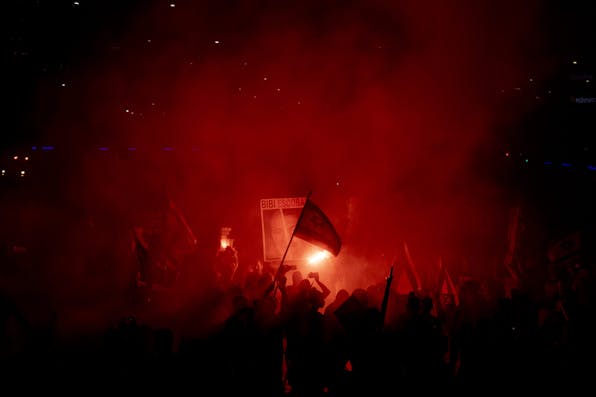
July 18, 2024
An October 7 Commission of Inquiry Could Exacerbate Israel’s Civic Tension
A country united in dissatisfaction over the lack of a clear resolution might be better than a country even more bitterly divided by the presence of a clear resolution.
I can confidently answer the main question posed by Scott Abramson in his informative essay on state commissions of inquiry. Yes, such a commission will be formed to investigate the Hamas attack on October 7, because if Prime Minister Benjamin Netanyahu doesn’t do so, then the next government—almost certain to be formed by his opponents—definitely will. That’s exactly what happened the last time Netanyahu lost the premiership: the new government promptly set up two state commissions of inquiry into incidents that occurred during his tenure (a fatal stampede during the Lag ba-Omer celebrations at Mount Meron and Israel’s procurement of submarines and gunships).
But that inevitability is a great pity. Because in the current situation, far from playing the healing role Abramson attributed to previous commissions, any such commission will most likely exacerbate the divides.
In the nine months since October 7, enough information has come out that there is already broad agreement in Israel about many salient points. Everyone agrees that the army bears substantial blame for the attack, from the numerous intelligence warnings it ignored (a failure shared by the Shin Bet security service), through its inadequate deployment along the Gaza border, to the incredible fact that many of the defenders didn’t even have guns (female soldiers serving as spotters weren’t issued guns at all; kibbutz security squads were given guns, but ordered to lock them in a central armory that most couldn’t reach when the terrorists invaded). Everyone also agrees that the government bears substantial blame, from the billions of dollars in cash that it allowed and even encouraged Qatar to funnel to Hamas to its eagerness to drink the intelligence community’s Kool-Aid and then market it to the public—namely, that Hamas was deterred following a military operation in 2021 (possible but unlikely; it hadn’t been deterred by any previous operation) and was primarily concerned with improving life for Gaza’s population (ludicrous to the point of insanity: when has Hamas ever cared about that?).
Responses to July ’s Essay

July 2024
An October 7 Commission of Inquiry Would Help Israel. Electoral Reform Would Help Much More.
By Neil Rogachevsky
July 2024
An October 7 Commission of Inquiry Could Exacerbate Israel’s Civic Tension
By Evelyn Gordon
July 2024
Watch and Read Scott Abramson and Haviv Rettig Gur Discuss Israeli Commissions of Inquiry and October 7
By Scott Abramson, Haviv Rettig Gur, Jonathan Silver